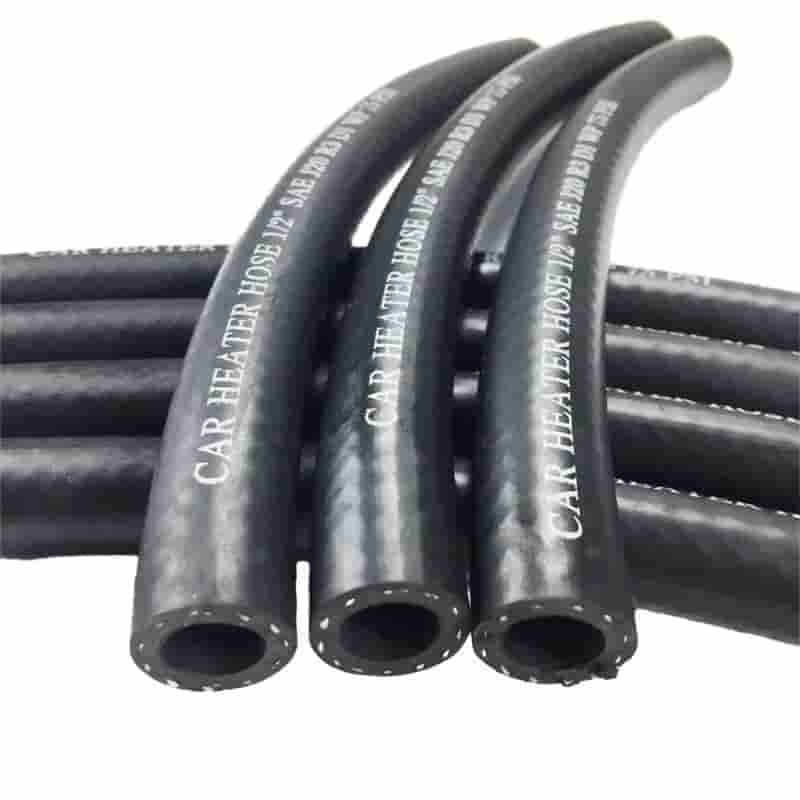brake line flex hose
Nov . 17, 2024 14:49 Back to list
brake line flex hose
Understanding Brake Line Flex Hoses Essential Modern Engineering Components
When it comes to the critical safety systems of a vehicle, the brake system ranks near the top. The efficiency and reliability of this system are largely dependent on various components, among which the brake line flex hose plays a vital role. Understanding what brake line flex hoses are, their functions, and their maintenance is essential for any vehicle owner or automotive enthusiast.
What is a Brake Line Flex Hose?
A brake line flex hose, also known as a flexible brake hose, is a crucial component of the hydraulic braking system in vehicles. Unlike rigid brake lines made of metal, flex hoses are designed to accommodate movement between the vehicle's body and the suspension system. They are typically made of a rubber or composite material reinforced with fibers to withstand high pressures and ensure durability.
The primary function of the brake line flex hose is to transfer hydraulic fluid from the master cylinder to the brake calipers. When the driver applies the brakes, the hydraulic pressure activates the calipers, forcing the brake pads against the rotors to slow down the vehicle. The flex hose must be capable of handling extreme pressures generated within the braking system while maintaining flexibility to allow for suspension movement.
Importance of Brake Line Flex Hoses
The quality and condition of brake line flex hoses are critical for vehicle safety
. A compromised hose can lead to brake failure, which may result in accidents or severe injury. Several factors can contribute to the degradation of these hoses, including age, exposure to extreme temperatures, and environmental conditions such as road salt and moisture.One of the most common issues with flex hoses is the development of cracks or leaks over time. When this occurs, air can enter the brake lines, leading to a phenomenon known as brake fade, where the braking system becomes less responsive. Additionally, a leak in the flex hose can result in a complete loss of hydraulic pressure, rendering the brakes ineffective.
Signs of a Failing Brake Line Flex Hose
brake line flex hose

There are several warning signs that vehicle owners should watch for to identify potential issues with their brake line flex hoses. These include
1. Leaking Brake Fluid If you notice fluid pooling under your vehicle, it could indicate a leak in the brake lines or the flex hoses. 2. Soft or Spongy Brake Pedal A brake pedal that feels soft or does not engage firmly may suggest air in the brake lines or a failing flex hose.
3. Cracks or Visible Damage A visual inspection of the hose can reveal signs of wear, such as cracks, bulges, or rubber deterioration.
4. Brake Warning Light If your dashboard brake warning light illuminates, it could signify a problem within the braking system, including issues with the flex hoses.
Maintenance and Replacement
Maintaining brake line flex hoses involves regular inspections as part of overall vehicle maintenance. It's advisable to have them checked during routine service intervals or whenever the brake system is serviced. If any signs of damage or wear are detected, replacing the flex hose promptly is crucial to ensure continued safe operation.
When replacing brake line flex hoses, it is essential to use high-quality products that meet or exceed manufacturer specifications. Cheap, subpar hoses may save money initially but could lead to failures down the line, resulting in costly repairs and potential hazards.
Conclusion
The brake line flex hose is an unsung hero in the complex hydraulic braking system of modern vehicles. Its ability to handle movement while efficiently transferring hydraulic fluid is vital for the safety and performance of your vehicle. By understanding the importance of these components and keeping an eye out for potential issues, vehicle owners can ensure that their brakes function effectively and safely for years to come. Always prioritize regular maintenance and address any concerns related to brake lines promptly; your safety on the road depends on it.
